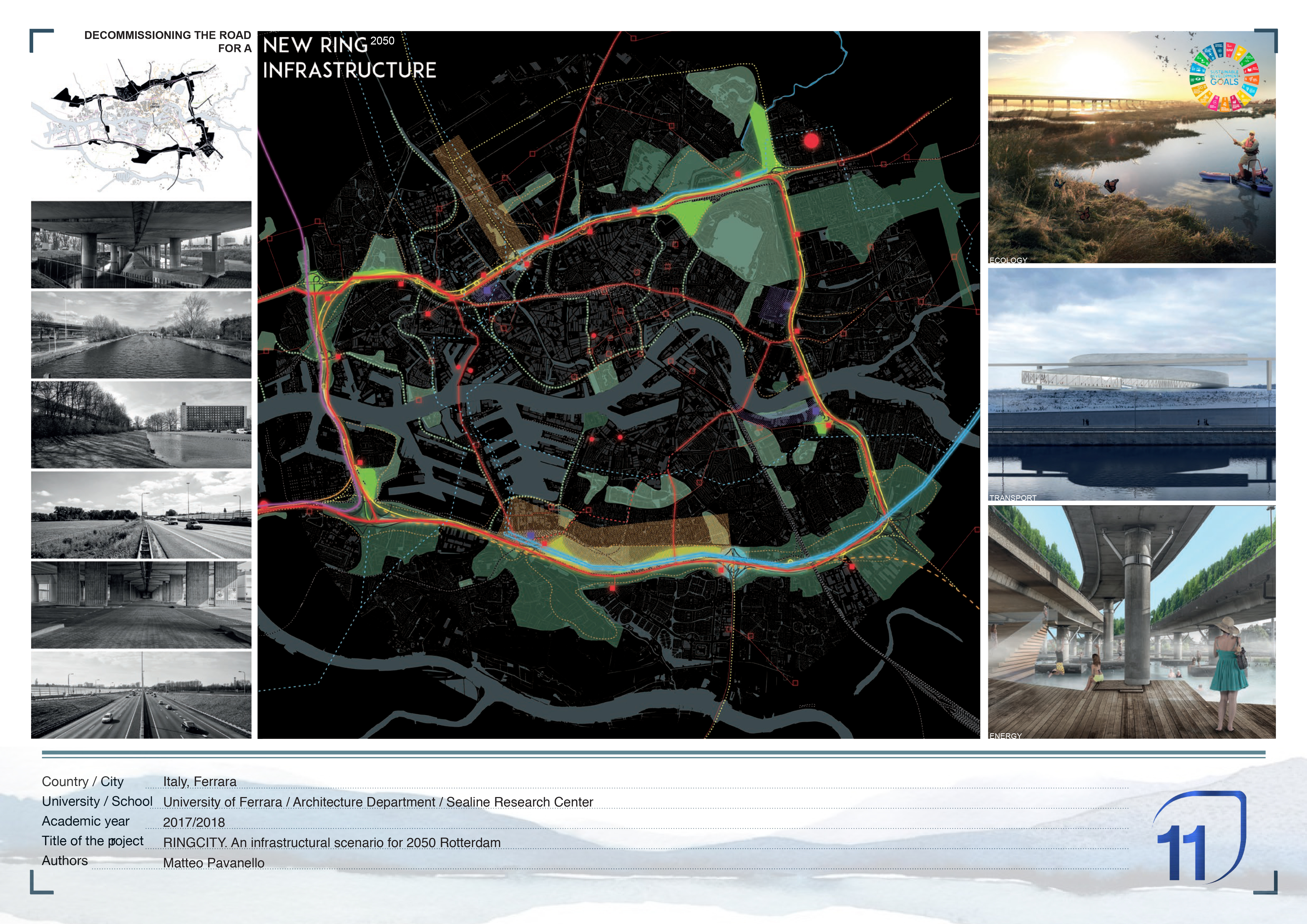
RINGCITY. An infrastructural scenario for 2050 Rotterdam
Master Thesis Laboratory in Landscape Architecture and Infrastructures
University of Ferrara
The European strategy for the reduction of greenhouse gas emission involves actions to reach the complete diffusion of autonomous vehicles by 2050. Important Dutch cities like Rotterdam are scheduling the decommissioning of large urban roads that turn to be obsolete. Here, the thesis addresses the set of issues related to the reuse of the city ring road by defining an alternative scenario to its demolition. The investigation sets a 30 years horizon to transform the current highway in a multimodal system capable of integrating existing and future networks (of energy, ecology and mobility) with the aim of facing climate change effects (such as floods, heat islands and loss of biodiversity) and providing the city with new green and blue infrastructures. Starting from 2023, 6 km of the A20 between Overschie and Kralingen will be progressively declassified and dismissed due to the opening of a new bypass close to the airport; this highway section will offer the opportunity to test exemplar solutions to be replicated in the next phases. The applicative case-studies developed in this context synthesize a design approach grounded on the objectification of the infrastructure as a found artifact in the landscape; its own spatial and systematic potentialities are exploited in relation to the surroundings to fulfill multiple goals: from water management and energy distribution, to the creation of new paths and shared public spaces. As a result, a new intensified infrastructural corridor will give to the city the chance to improve resilience and the relationships between urban sectors for long time separated by the road.
